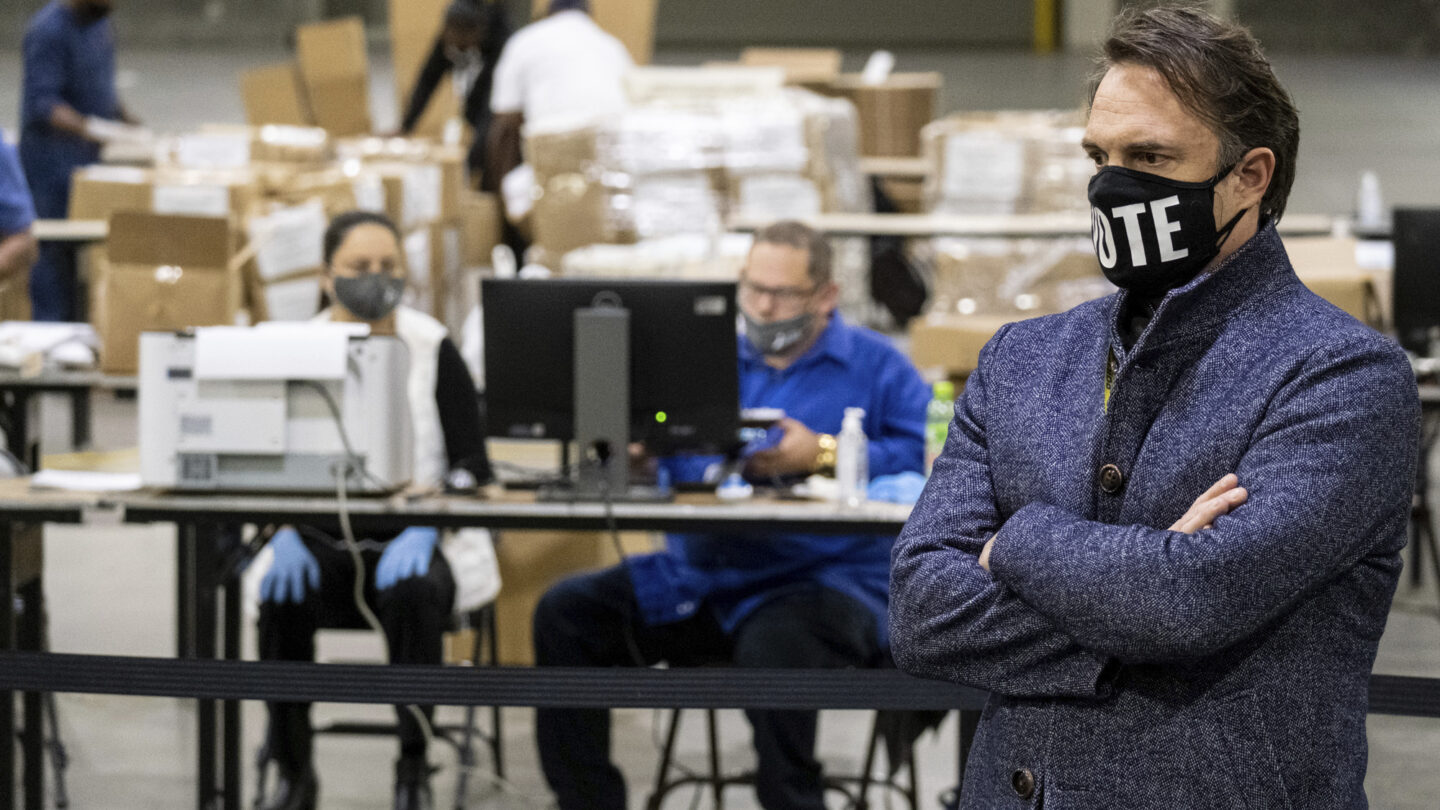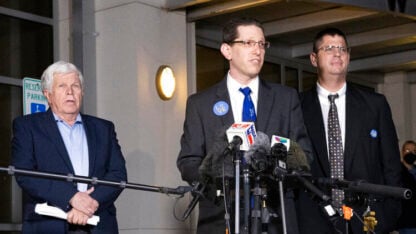Georgia’s most populous county, a Democratic stronghold that includes most of Atlanta, faces a high-stakes test in Tuesday’s municipal elections, with some Republicans itching for a state takeover using a sweeping new law.
Struggles to deliver a smooth voting process during the early months of the coronavirus pandemic trained a national spotlight on Fulton County. That only intensified as former President Donald Trump and his allies pushed unproven claims that widespread fraud robbed him of victory last year.
Against that backdrop, GOP state lawmakers empowered the Republican-controlled State Election Board to remove local election officials. Democrats said the provision was written with Fulton in mind, and Republicans soon launched a state review that could result in the replacement of the Democrat-controlled county election board with the state board’s appointee.
The Atlanta mayor’s race Tuesday is the most high-profile municipal election in Fulton County. It’s a wide-open contest with 14 candidates, so narrow margins and a runoff are likely. Any missteps could be pounced on as evidence the county isn’t competent to run its own elections.
“We know that there’s a target on our backs,” county Board of Commissioners Chairman Robb Pitts said. “They’re trying to use Fulton County and our voters to score political points … but I’m just not going to let that happen.”
Amid a flood of criticism, the county election board voted in February to fire elections director Rick Barron, only to have its decision rejected by the Board of Commissioners.
The drumbeat of negativity has been tough on county staffers. Barron dismisses much of it as politically motivated, noting that a statewide convention of county election officials gave Fulton a regional award for overcoming obstacles during the 2020 election cycle.
“Our peers nominated us for that and we got a thundering standing ovation,” he said.
Republican lawmakers in July requested a performance review “to assure voter confidence in our elections and help to rectify elections process deficiencies.” The State Election Board, as required by the new law, responded in August by appointing a three-person panel to review Fulton’s election operations.
Some observers believe the problems with the county’s election administration have been overblown.
“If you look hard enough in a county that is as large and as populated as Fulton, you’re going to find problems,” said Daniel Franklin, associate professor emeritus of political science at Georgia State University. “But I’ll bet you’d find problems elsewhere, too.”
Secretary of State Brad Raffensperger, a longtime critic of Fulton County, seized on the case of two elections workers who were fired this month after colleagues reported seeing them shredding voter registration applications.
“New allegations have come to light that Fulton County was seen shredding 300 applications related to Georgia’s municipal elections,” Raffensperger said in a news release calling for a Justice Department investigation.
Fulton officials chafed at that characterization.
“We weren’t SEEN to have done it,” Barron said, adding that Fulton officials immediately contacted both the secretary of state’s office and the district attorney’s office. “Two of our employees did something and we then reported it to them because we’re interested in being transparent and making sure that the situation was investigated.”
Franklin said Raffensperger’s focus on Fulton County makes political sense: After rejecting Trump’s calls to “find” enough votes to overturn his loss in Georgia, Raffensperger now faces GOP primary challengers, including one endorsed by the former president.
“The secretary of state’s in a very tough reelection campaign and this is red meat for him,” Franklin said.
But the county does have a history of problems with its elections. Fulton agreed in 2015 to pay a $150,000 penalty and improve poll worker training after state investigators found multiple violations of election law in 2008 and 2012.
During the June 2020 primary election, some voters never received requested absentee ballots. Many waited hours to vote after experienced poll workers quit and polling sites were consolidated because of the coronavirus pandemic.
The county made changes before the general election and was observed by an independent monitor from October through January’s U.S. Senate runoffs. The monitor, Carter Jones, reported to the State Elections Board that he saw “sloppy processes” and “systemic disorganization” but did not witness “any illegality, fraud or intentional malfeasance.”
The elections warehouse was chaotic the night before the general election, while scanners jammed and other equipment went down on election day. Jones also had some concerns involving the way ballots were transferred and stored, according to notes he kept.
Barron said his department has acted on Jones’ recommendations, making staffing changes, creating a separate absentee ballot division and updating standard operating procedures.
With the ongoing state review looming, he worries that some of the new law’s provisions could complicate things during Tuesday’s closely watched election.
The law requires counties to report by 10 p.m. on election night the number of ballots cast by mail, early in person and on election day. That’s a tight deadline when polls close at 7 p.m., even tighter with Atlanta keeping polls open until 8 p.m. in its municipal election, Barron said.
Confusion about the new law may affect voters who show up at the wrong precinct, who traditionally cast a significant proportion of Fulton’s provisional ballots, Barron said. This election will be the first in which provisional ballots cast by out-of-precinct voters won’t count unless it’s after 5 p.m. and the voter signs a statement saying it would be impossible to get to his or her own precinct by the close of polls.









